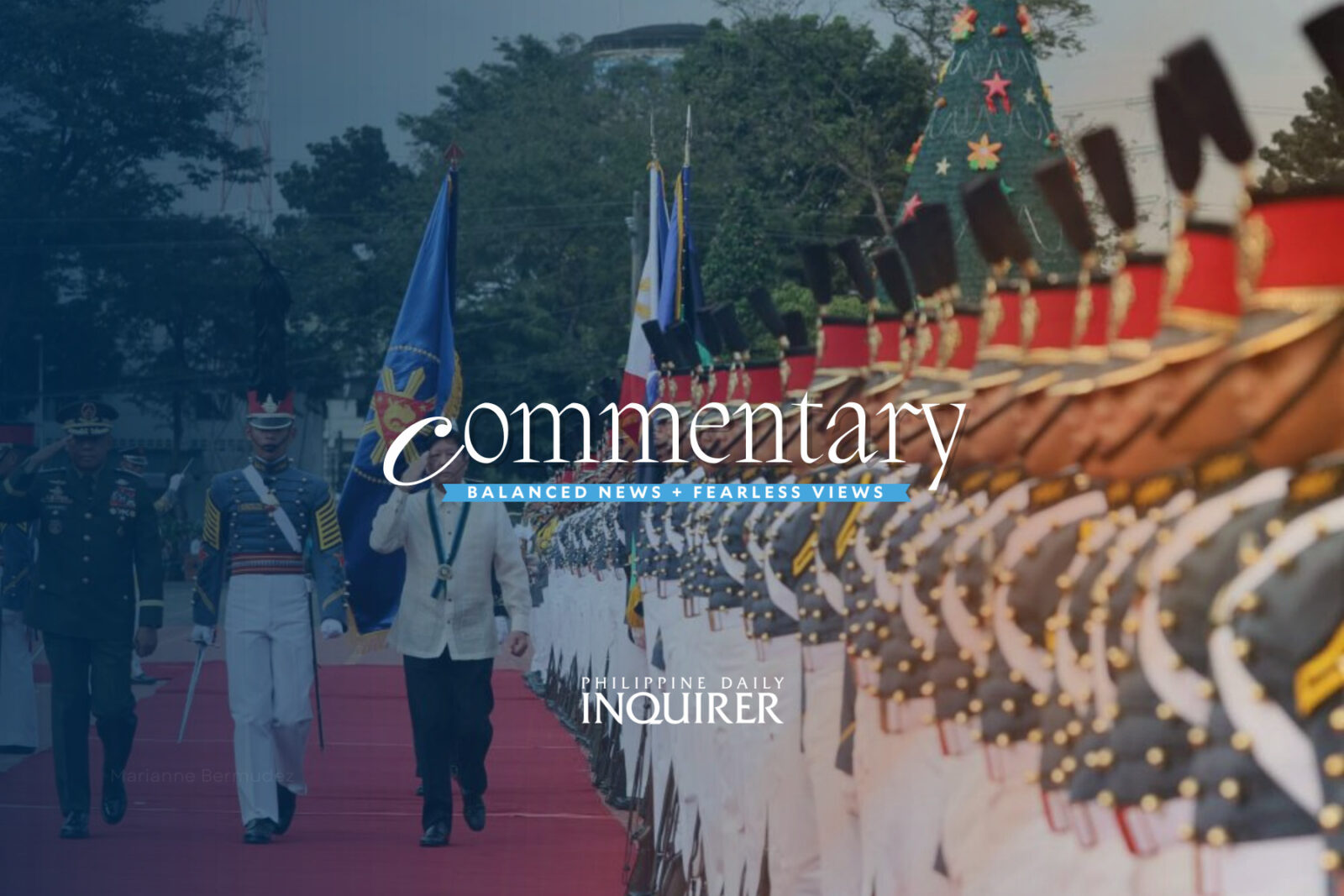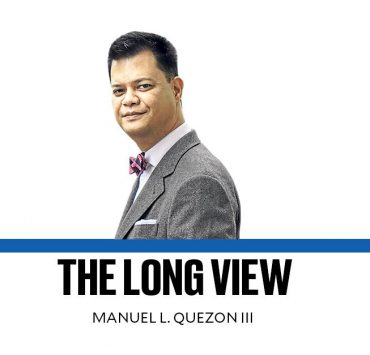Commitment to peace, security, and rule of law

To say that these are times of disquiet would be an understatement. There are conflicts and strife in many places in the world, where power, greed, and aggression rear their ugly head in defiance of the rules-based international order.
Acts committed by our giant neighbor in the West Philippine Sea have seeped into the consciousness of Filipinos wherever they may be. It is a defense issue because our sovereignty is being attacked in this brazen attempt to get what has been established as ours. It is an economic issue because the livelihood and safety of our fisherfolk are at stake. Furthermore, it is a matter of environmental sustainability, given the damage caused by these incursions on our coral reefs and marine resources.
Given all these, it is not surprising that the West Philippine Sea has become an increasingly important issue in next month’s midterm elections.
A recent Social Weather Stations survey reveals that 78 percent, or eight out of 10 Filipinos, would vote for a candidate who firmly supports asserting the country’s rights in the West Philippine Sea. National security and sovereignty in the area have emerged as powerful electoral issues—a position that no serious candidate can afford to ignore.
The reality is that we are best able to maintain this defense posture when propped up by partnerships and friendships with countries that share our values and commitment to the international order.
The same survey revealed that 77 percent, again eight out of 10 Filipinos, agree that the Philippine government must further strengthen its alliance with other countries through joint patrols, joint sails, and joint military exercises to assert and defend the Philippines’ territorial and economic rights in the West Philippine Sea. This reflects a growing desire for a strategic, multilateral approach to the Philippines’ foreign and security policy.
One concrete step toward this end is the establishment and fortification of trilateral relations among the Philippines, the United States, and Japan. In April last year, President Marcos met with his counterparts, United States President Joseph Biden and Japan Prime Minister Kishida Fumio, in a historic summit.
This is consistent with the administration’s emphasis on expanding our country’s international partnerships. This, in particular, has strengthened the ties between the three nations, as driven by a series of joint activities, multiple dialogues, and key initiatives, such as the Luzon Economic Corridor.
Most recently, navies from the three nations conducted a multilateral maritime cooperative activity in the West Philippine Sea. Armed Forces of the Philippines chief Gen. Romeo Brawner Jr. highlighted that these exercises not only improve the nations’ capacity to respond to maritime security challenges, but also enhance their collective ability to defend shared interests.
In his recent visit to the Philippines, US Secretary of Defense Pete Hegseth highlighted the activity as a strong signal of cooperation among the three nations. He emphasized that President Donald Trump “greatly values the ability to unite an alliance, rather than relying solely on unilateral action, which is never as effective.” This statement reinforces the US’ commitment and counters any doubts about its resolve to further strengthen this trilateral partnership.
Japan likewise reaffirmed its commitment to strategic ties and advancing cooperation to ensure the free and open use of the seas. It noted that through this activity, Japan, the Philippines, and the US showcased their resolute stance over a shared vision of a Free and Open Indo-Pacific, and reaffirmed their shared commitment to the rules-based international order.
And, indeed, while maritime security remains at the forefront of the partnership, the collaboration has expanded into other critical areas, including cybersecurity, energy security, and supply chain resilience. Initial uncertainties brought about by the aftermath of the US elections and even recent trade decisions do not contradict the fact that the three-nation alliance could only get stronger.
As we commemorate the first anniversary of the summit, we take comfort in the company of our friends. We pledge to work toward a prosperous and secure region, and renew our shared commitment to peace, security, and the rule of law.
—————-
Dindo Manhit is the founder and CEO of Stratbase Group.

















